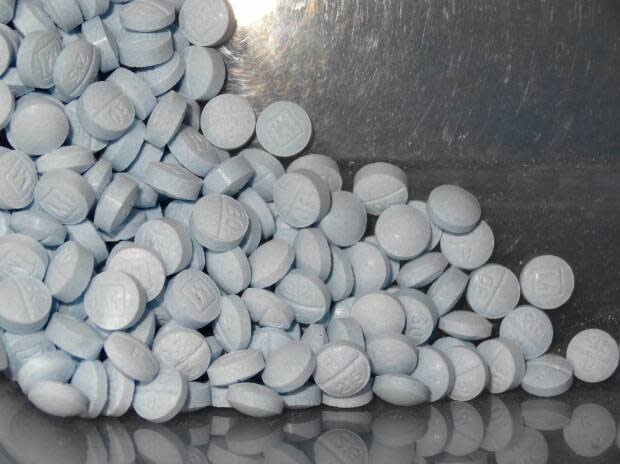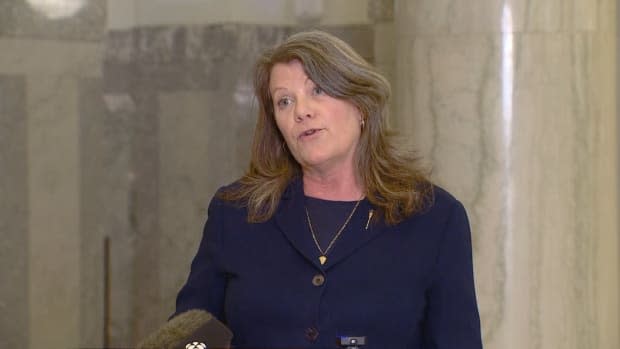Alberta First Nations people overrepresented among opioid poisonings, report says

A new report shows First Nations people in Alberta are disproportionately dying from opioid poisonings at rates previously unseen.
First Nations people died seven times more frequently than non-First Nations people during the first six months of 2020, the report says.
"The public, they should be outraged," said Melissa Peters, an Edmonton social worker who helps street-involved clients. "Why isn't this something that's being met as an emergency?"
Peters, a Mi'kmaw woman who works with the organization Alberta Addicts Who Educate and Advocate Responsibly, said the heavy burden of the crisis on First Nations people did not surprise her. She said between 75 and 85 per cent of the people who visit the Jasper Avenue organization are Indigenous.
Unless society tackles the trauma Indigenous people have experienced, the trend will continue, she said.
Although First Nations people make up six per cent of the province's population, they have constituted a growing proportion of Alberta's opioid deaths between 2016 and 2020, the report said.
Métis and non-status Indigenous people are not included in the tallies.
Apparent accidental opioid poisoning deaths
First Nations people are overrepresented in emergency room visits, hospitalizations due to opioid poisoning, and the rate at which they are prescribed naloxone kits, which can help reverse a potentially fatal overdose.
People in Lethbridge and southern Alberta are particularly vulnerable, says the report, which was authored by the Alberta government and the Alberta First Nations Information Governance Centre.
Methamphetamine, fentanyl and carfentanil are causing increasing numbers of deaths.
Naloxone access an issue on First Nations
The data was unsurprising to Brian Jackson and Lori Vrebosch, who live on the Piikani First Nation in southern Alberta. Both are members of Moms Stop the Harm, a network of families affected by substance abuse.
Vrebosch, whose 25-year-old son died of drug poisoning in 2018, said the provincial government's recovery-oriented approach to addictions is wrongheaded. She said there's a lack of community support available to save lives when a person leaves detox or rehab and falls into old patterns.
Jackson, a Piikani band councillor who said he was speaking only for himself, has lost two siblings, a first cousin and a sister-in-law to substance use during the last couple of years.
Overdose deaths on the reserve have increased markedly since 2018, he said. With the nearest pharmacy a 20-minute drive away, and identification required, getting Naloxone kits isn't easy, he said.

At the community's last annual summer gathering in 2019, leaders handed out 1,500 free kits in a weekend, and heard they reversed at least five overdoses, he said.
He also wants to see children trained on how to use nasal naloxone.
"Chances are there's been some children that have watched their parents or their loved ones die of an overdose because they didn't know what to do," he said.
The Opposition NDP accused the United Conservative Party government of releasing the report quietly last Friday, hoping no one would notice.
Mental health and addictions critic Lori Sigurdson said the province needs an immediate action plan, including more supervised consumption sites, offering a safe supply of drugs and more frequent screening of street drugs for potentially fatal chemicals.
In response, Justin Marshall, press secretary to the associate minister of addictions and mental health, said the Opposition plans to "flood First Nations communities with taxpayer-funded OxyContin-style narcotics" to replace street drugs.
"We believe strongly that we must work with indigenous communities to support healing and wellness that lead to meaningful recovery," Marshall said.
The government's moves to increase residential addictions treatment beds and detox program spaces includes organizations run by, and geared to Indigenous people. One of five new recovery communities will also be on the Blood reserve in southern Alberta.

 Yahoo Finance
Yahoo Finance 